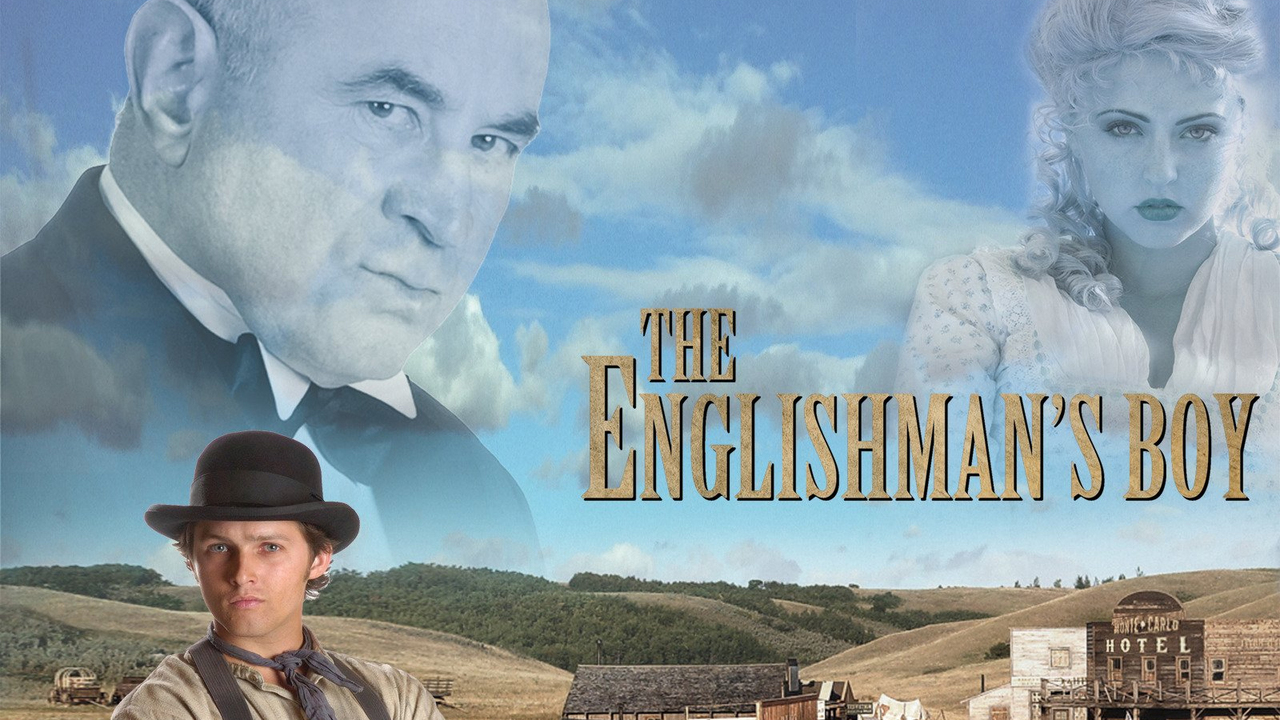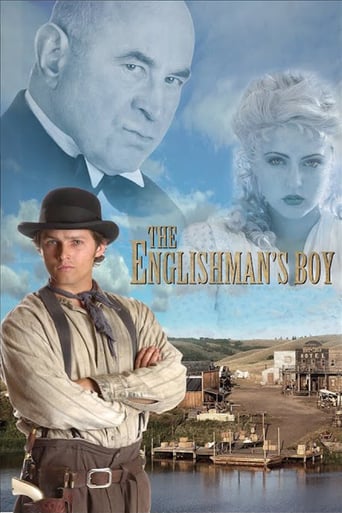Dorathen
Better Late Then Never
Mischa Redfern
I didn’t really have many expectations going into the movie (good or bad), but I actually really enjoyed it. I really liked the characters and the banter between them.
Lucia Ayala
It's simply great fun, a winsome film and an occasionally over-the-top luxury fantasy that never flags.
Hayleigh Joseph
This is ultimately a movie about the very bad things that can happen when we don't address our unease, when we just try to brush it off, whether that's to fit in or to preserve our self-image.
johnwlkes1969
Having read the novel, one can quickly surmise that this rendition should have been made into a proper film instead of a two part CBC television series. What saves the whole thing are the performances or Katharine Isabelle, and more specifically, Nicholas Campbell. There is too much restraint in the film; it should have been more violent, more beautifully shot, and more cinematic in it's direction. I bore all of these limitations only to get another glimpse of Shorty, the haunted, remnant of a time when cowboys were real, and life held no room for frivolity. Critics have accused Mr. Campbell of showing too much restraint in his performance; but the actor had his own real life demons to contend with, and I feel he channels this angst in his performance. You can see it in his eyes. He is acting from his belly, immersing himself in the pain of Shorty. It's a wonderful performance; even down to the way his eyes look into the distance, like a real cowboy would. Some great performances wasted in a rather flat television drama.
Kitty03
This is the best Canadian production I have seen in years. The plot was riveting, the acting first-rate and the production values excellent - equivalent to anything produced in the United States or elsewhere. The acting sometimes tends to reflect the intense nature of the action. This should not surprise us. After all, a story based on a real historical incident in which nearly two dozen Assiniboine were killed, including women and children, cannot be an unemotional one. The casting is somewhat problematic. Nicholas Campbell and Michael Eisner do not physically look alike enough to convince us that they are older and younger versions of the same man. Their acting styles and the direction that they must have been given to portray their characters are also diametrically opposed. Finally, there is the issue of the flashbacks. Constantly switching back and forth from 1873 to the 1920s is not done as smoothly as it could have been and is very disconcerting. Although the script embellishes somewhat upon the known historical facts of the Cypress Hills Massacre (eyewitness accounts at the trials of the wolfers were somewhat contradictory) the essence of the historical event that led to the formation of the Northwest Mounted Police remains intact.
Richard Maurer (ram-30)
How fitting that Guy Vanderhaeghe's novel about Hollywood's misguided love affair with Cowboys and Indians has finally made it to the screen, even if it is the small screen. The two part TV movie has many great strengths. One strength is its glimpse into Tinseltown's treatment of First Nations people. The Louis B. Mayerish producer (played by Oscar nominee Bob Hoskins) is determined to have his way to show a realistic Cowboy movie. When an underling suggests rounding up some Mexicans to play the Indians (which was what happened in those days), Mr. Chance insists they get real "Indians". This is a huge irony as the movie mogul is not concerned with the real truth. He wants Tom Hardwick to be the hero in his film, when in fact the real Mr. Hardwick is shown, through Shorty McAdoo's flashbacks, to be the villain in the actual story. The real hero is Shorty McAdoo, a wrangler and stunt man who is already upset with the movie mogul after a young co-worker is seriously injured by Mr. Chance's hazardous practices. He is the one who's life history is the background for Mr. Chance's Western called "The Besieged". Another of the film's strengths is the casting. Besides Bob Hoskins, we have ubiquitous Canadian TV man R.H. Thompson. Thompson, who usually plays the Canadian hero, plays the villain here. The hero is played with unusual restraint by Nicholas Campbell, who will be a familiar face to many viewers. Harry Vincent, the man who tries to convince the movie mogul to tell the real story, is played by Michael Therriault. Therriault is a relative newcomer to the screen although he has previously starred as Tommy Douglas in the last great Canadian prairie TVM. Anyone keen on Prairie history will appreciate a film that depicts the Cypress Hills massacre. Unfortunately, great First Nations performers like Tyrone Tootoosis (BIG BEAR) and Tantoo Cardinal (DANCES WITH WOLVES) do not have much to work with here. One other great strength of this movie is the parallels made between Shorty's witness to the insensitivity of his cowboy boss Mr. Hardwick during the 1870s scenes and the insensitivity of the movie boss Mr. Chance in the 1920s. The drama weaves effortlessly in and out from flashback to present history (in this case, the Silent Film era) . Some may dismiss this film as an attempt to cash in on the recent popularity of Westerns like 3:10 TO YUMA on the big screen and successful small screen efforts like Spielberg's "Into the West" and AMC's "Broken Trail". Truthfully, the novel was written a decade ago and was in the works for years. I just call it good timing... and good entertainment.

